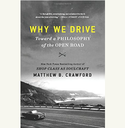D.E. Wittkower (ed.),
Facebook and Philosophy
(Open Court, 2010, 285 pages).
Don’t look to this volume for a definitive response to the question of whether Facebook is good or bad. Facebook, like any tool, has its pros and cons, a few of which are mentioned in any given essay, and a few of which are contradicted in other essays. Insightful and representing many schools of thought, these essays will probably raise more questions than they answer for any reader. But that’s part of the fun, isn’t it?
Facebook, it can be argued, mixes media (defined as entertainment or consumption) with personal interaction (connecting and keeping in touch with people we know outside of Facebook). This is a confusing mix. Wittkower points out the rigorist attitude of those Facebook critics who ask, “Is it important? Is it meaningful? We would only ask these questions if we view the status update from the outside as if Facebook were a television. But the feed is not a broadcast. The feed is our friends” (p. xxix). If we asked questions like that in face-to-face conversations, “we would be failing to be a friend in a very basic way”, he adds (p. xxx).
Then Wittkower seems to contradict his own introductory remarks later in his co-authored essay about how our lives become “spectacles” on Facebook, no longer lives directly lived (p. 98). Is Facebook an entertainment broadcast, or is the newsfeed part of my life and how I interact with my friends and family? Perhaps it’s so hard to tell the difference, as Wittkower explains, because on Facebook, socializing “mostly takes the form of simply consuming alongside others” (p. 99). I would add that the same can be said for our culture.
The sad truth is that some of us want friendships that make no demands, and we find them quite easily by “friending” on Facebook. There, friends only appear on our virtual doorstep – and only when we log on at that. Condella puts it this way: “To date, no one has ever helped a friend move on Facebook” (p. 117). Facebook does help people connect – perhaps too easily. One essayist, Bar-Tura, shares his experience networking teens from across the city, from different religious and racial backgrounds, in a social justice cause. Noble causes go nowhere unless we realize that “the wall-to-wall must become face-to-face. Profiles must become people. The group must actually gather. Only then can divides be bridged, and social change be made possible” (p. 239), Bar-Tura goes on to explain. If it fails to do so, Bloor adds, “The fault lies not so much in our sites, but in ourselves. If we wanted in-depth, reflective friendships along the lines described by Aristotle, no doubt the flexible technology available to us would help support us in this, and the many talented individuals directing that technology to meet human needs would see that we soon had it” (p. 157).
There are equally troubling concerns about privacy on Facebook with its “reciprocal panopticism” as Doyle and Fraser call it (p. 229). The more democratic and ubiquitous our use of Facebook, the more government surveillance, terrorist information gathering, and predatory criminal activity can take place, even if we all stayed abreast of the latest privacy settings. Imprudent photos our future employers may find, foul-mouthed friends we never meant for our parents to meet, and the political range of our associates are only the most obvious boundary concerns. “Those who embrace Habermas’s vision would likely [assert] that blogs and Twitter are creating an open and deliberative democracy. […] Foucault, for his part, reminds us how the same diffusion of power can facilitate the extension of surveillance and control into our most intimate spaces” (p. 229).
A few authors discuss the structure of Facebook and the underlying message of the medium. Losh, for example, presents the games on Facebook as the most visible sign that “the chief resource is attention” in these games and throughout Facebook (p. 35). Most games (since profits are made from greater numbers of users) favor users who have more friends to invite into the game (p. 46). This marketing device and underlying logic does run throughout Facebook. It can be argued further on this basis that, through encouraging quantity over quality of friendships, Facebook inadvertently undermines the Aristotelian “virtuous friendship,” which requires a good deal of time and effort to develop. Facebook puts great emphasis on immediacy, too, and a constant feed of it, to the disadvantage of memory and perhaps coherency (p. 28). It is worth considering what else Facebook renders obsolete, and whether we are better off with the substitute, as Bogost reflects in his essay (pp. 21-32).
I’ve chosen to unpack just a few of the discussions that most interest me. Other discussions concern the meaning of privacy, which one author defines as respecting the context in which information is made available (p. 8). Thalos argues that Facebook forces users into a robot-like facelessness, while Sarachan argues for the artistry possible in a Facebook profile. Some authors, Wandel and Beavers, warn against “fronting” on Facebook (p. 89), while Briggle explains that he isn’t trying to front so much as anaesthetize his appearance for a mixed crowd, making himself neutral enough to avoid offense (p. 168). Besides, Marinucci points out, you really can’t “front” where most of your “friends” know you face-to-face too (p. 65).
The reader will encounter philosophies ranging from utilitarianism to virtue-based ethics and feminism, and those who argue that an abundance of choice is distracting (p. 261). These discussions weave in and out of one another and raise further questions, all of which are worth pondering in-depth before logging back on.
Juliana Weber is a graduate of Ave Maria University currently working in Religious Education at a parish in the Archdiocese of Washington. She also holds a BA in Psychology from SUNY-Fredonia.



